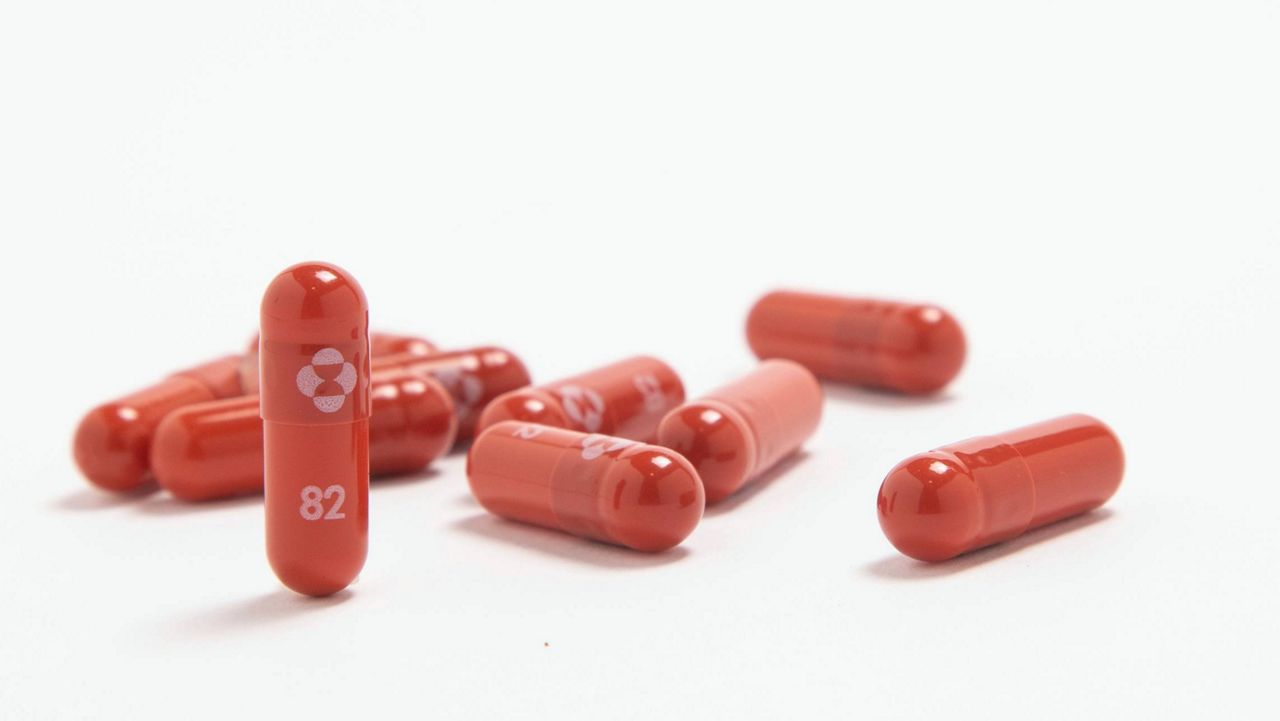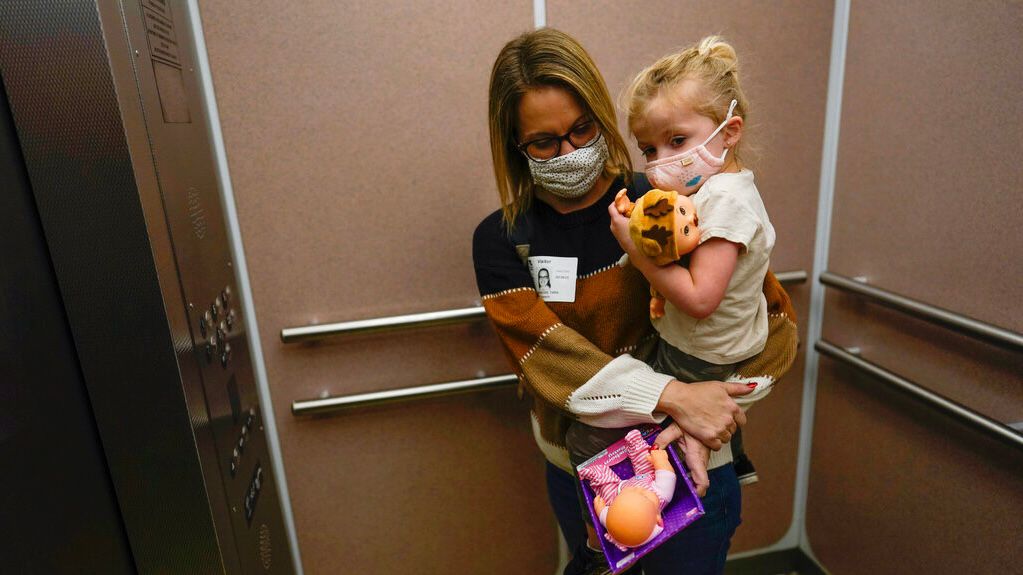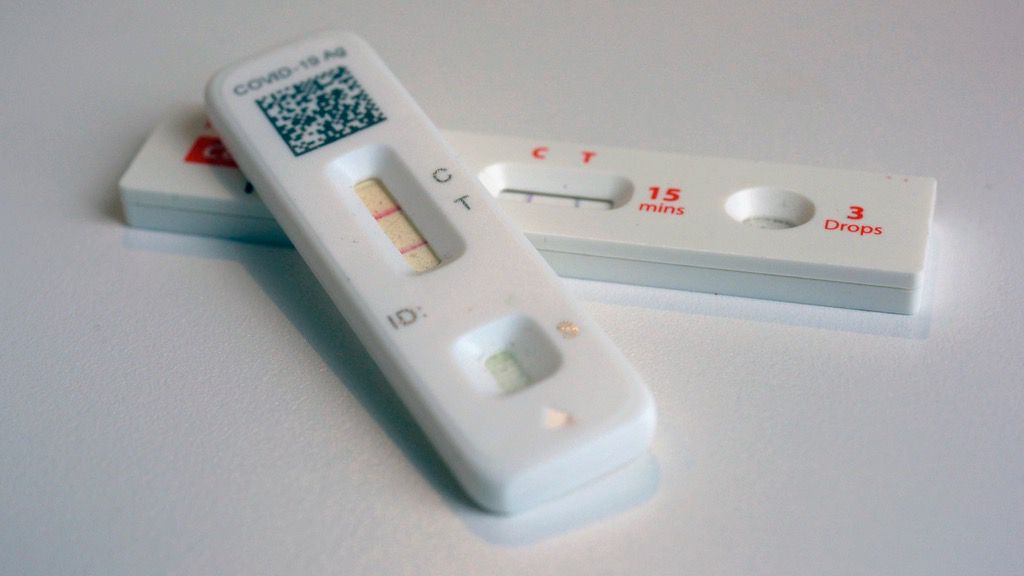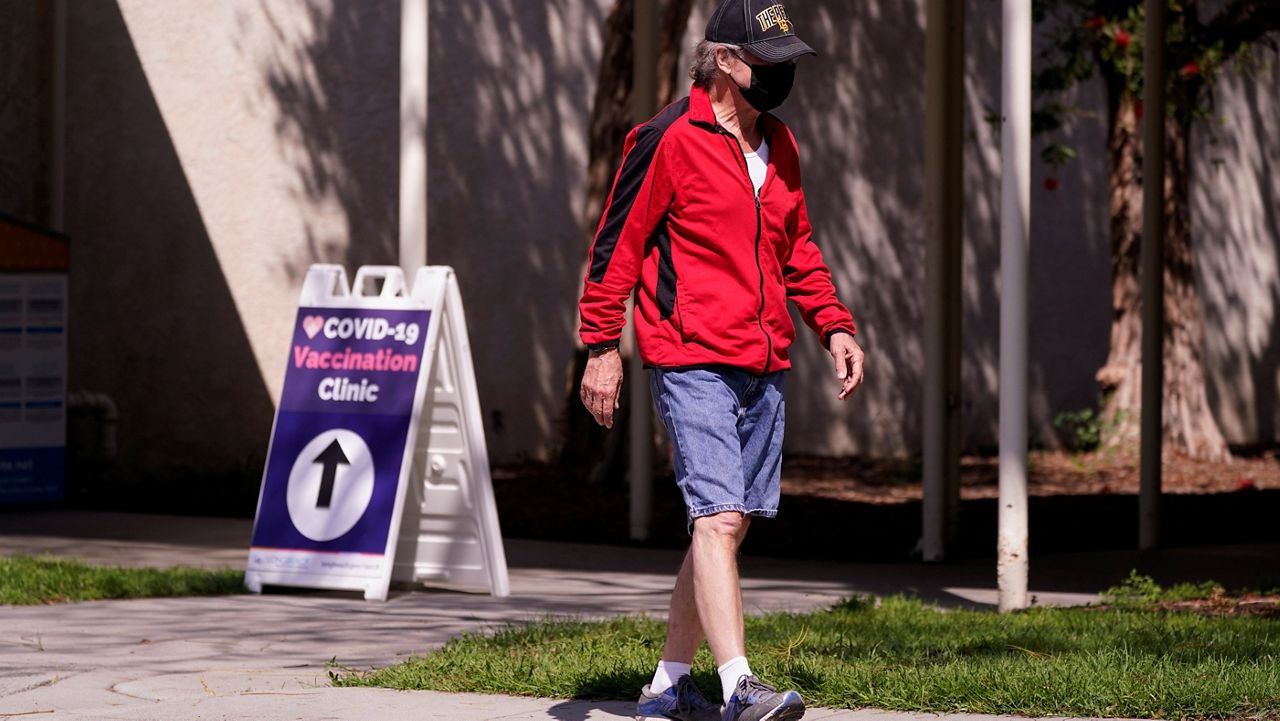An advisory panel to the U.S. Food and Drug Administration voted Tuesday to recommend an experimental oral antiviral pill to treat COVID-19 from drugmaker Merck for emergency use authorization.
The 13-10 vote clears the way for the agency to authorize the first-of-its-kind treatment in the United States. The FDA, which is not bound by the panel's vote, is expected to make its own decision on the drug.
Merck’s drug uses a novel approach to fight COVID-19: It inserts tiny errors into the coronavirus’ genetic code to stop it from reproducing. That genetic effect has raised concerns that the drug could spur more virulent strains of the virus, but FDA regulators said Tuesday that risk is theoretical and seems unlikely.
Updated clinical trial data released last week showed that the antiviral medicine, known as molnupiravir, is 30% effective at preventing hospitalization or death. Interim results released last month said the pill was 50% effective.
Merck’s update includes data on all 1,433 trial participants. The company said 9.7% of people in the placebo group were hospitalized or died from COVID-19, compared to 6.8% who took the drug. Nine deaths were reported in the placebo group, and one in the molnupiravir group.
Molnupiravir, developed in collaboration with Ridgeback Biotherapeutics, aims to treat mild to moderate COVID-19 in adults who have tested positive and are at high risk for severe cases.
“Merck and Ridgeback Biotherapeutics have conducted a rigorous development program for molnupiravir, and believe that molnupiravir has the potential to address a significant unmet medical need for an oral medicine for adults with COVID-19 who are at risk for progressing to severe COVID-19 and/or hospitalization,” a Merck news release said Friday.
While Merck continues to tout the medicine as effective, the lower efficacy rate falls well short compared to a rival pill being developed by Pfizer that is 89% effective against hospitalization or death, according to interim clinical trial data. The Pfizer pill, known as Paxlovid, is also being considered by the FDA for authorization.
All COVID-19 drugs currently authorized by the FDA require an injection or IV, which limits their use. If authorized, Merck’s drug would be the first that patients could take at home to ease symptoms and speed recovery. It is already authorized for emergency use in the United Kingdom.
The Biden administration has agreed to purchase 3.1 million courses of the drug from the New Jersey-based company, pending authorization.
The group’s recommendation came after hours of debate about the drug’s modest benefits and potential safety issues. Experts backing the treatment stressed that it should not be used by anyone who is pregnant and called on FDA to recommend extra precautions before the drug is prescribed, including pregnancy tests for women of child-bearing age.
The panel voted to backthe drug for adults with mild-to-moderate cases COVID-19 who face the greatest risks, including the elderly and those with comorbidities such as asthma or obesity.
Most experts also said the drug shouldn’t be used in vaccinated patients, who weren’t part of the study and haven’t been shown to benefit from the medication.
The group determined that the benefits outweight the risks, including the possibility of birth defects if used during pregnancy.
That smaller-than-expected benefit amplified experts’ concerns about the drug’s toxicity for human fetuses.
FDA scientists told the panelists earlier Tuesday that company studies in rats showed the drug caused toxicity and birth defects when given at very high doses. Taken together, FDA staffers concluded the data “suggest that molnupiravir may cause fetal harm when administered to pregnant individuals.”
FDA is weighing a blanket restriction against any use in pregnant women or allowing it in rare cases. Some panelists said the option should be left open for pregnant mothers who have high-risk COVID-19 and may have few other treatment options.
Dr. Janet Cragan, who voted to back the drug, said that even with tight restrictions some pregnant women would inevitably take the drug.
“I don’t think you can ethically tell a woman with COVID-19 that she can’t have the drug if she’s decided that’s what she needs,” a panel member and staffer with the Centers for Disease Control and Prevention. “I think the final decision has to come down to the individual woman and her provider.”
Spectrum News Ryan Chatelain and The Associated Press contributed to this report.








